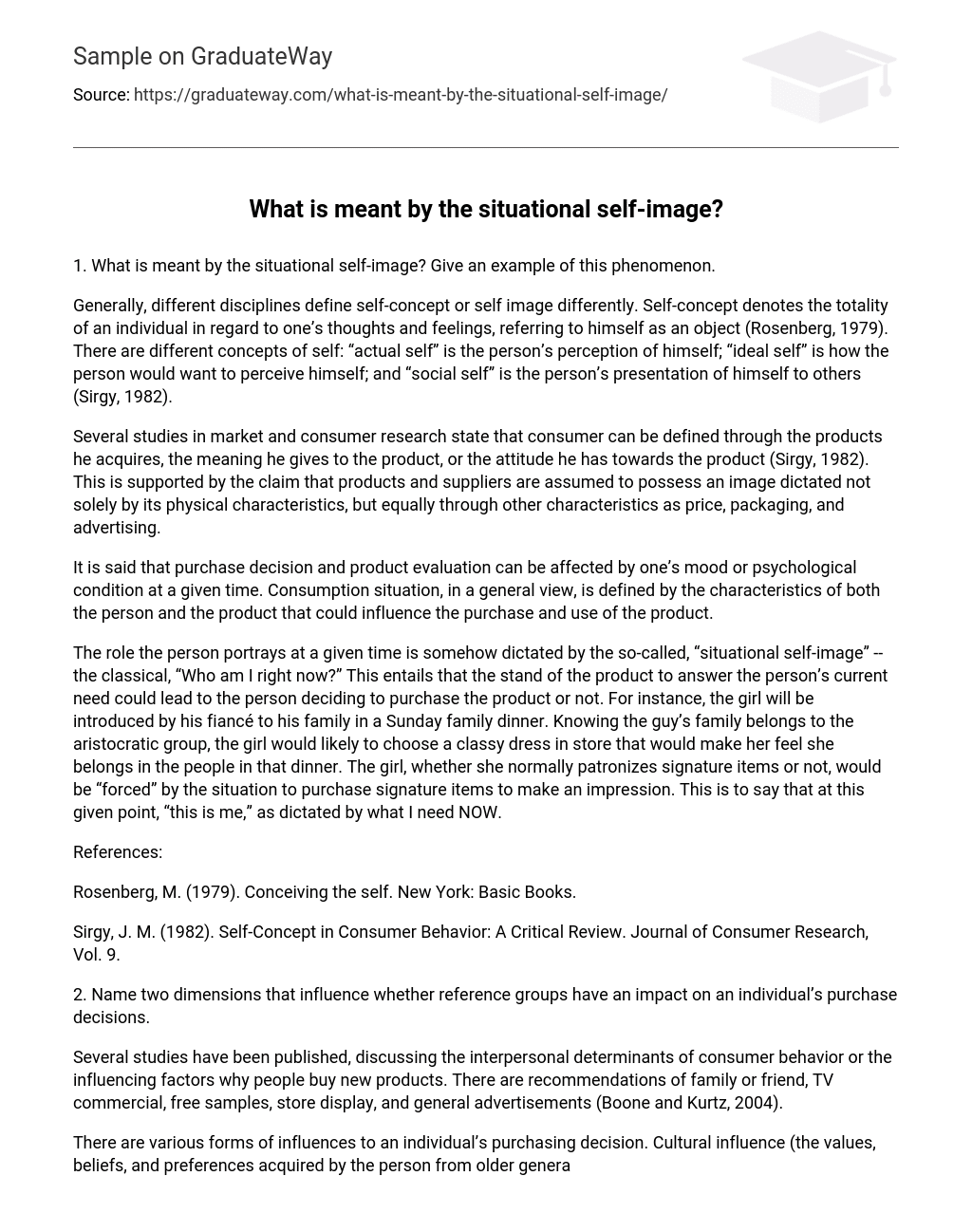Generally, different disciplines define self-concept or self image differently. Self-concept denotes the totality of an individual in regard to one’s thoughts and feelings, referring to himself as an object (Rosenberg, 1979). There are different concepts of self: “actual self” is the person’s perception of himself; “ideal self” is how the person would want to perceive himself; and “social self” is the person’s presentation of himself to others (Sirgy, 1982).
Several studies in market and consumer research state that consumer can be defined through the products he acquires, the meaning he gives to the product, or the attitude he has towards the product (Sirgy, 1982). This is supported by the claim that products and suppliers are assumed to possess an image dictated not solely by its physical characteristics, but equally through other characteristics as price, packaging, and advertising.
It is said that purchase decision and product evaluation can be affected by one’s mood or psychological condition at a given time. Consumption situation, in a general view, is defined by the characteristics of both the person and the product that could influence the purchase and use of the product.
The role the person portrays at a given time is somehow dictated by the so-called, “situational self-image” — the classical, “Who am I right now?” This entails that the stand of the product to answer the person’s current need could lead to the person deciding to purchase the product or not. For instance, the girl will be introduced by his fiancé to his family in a Sunday family dinner.
Knowing the guy’s family belongs to the aristocratic group, the girl would likely to choose a classy dress in store that would make her feel she belongs in the people in that dinner. The girl, whether she normally patronizes signature items or not, would be “forced” by the situation to purchase signature items to make an impression. This is to say that at this given point, “this is me,” as dictated by what I need NOW.
References
- Rosenberg, M. (1979). Conceiving the self. New York: Basic Books.
- Sirgy, J. M. (1982). Self-Concept in Consumer Behavior: A Critical Review. Journal of Consumer Research, Vol. 9.





